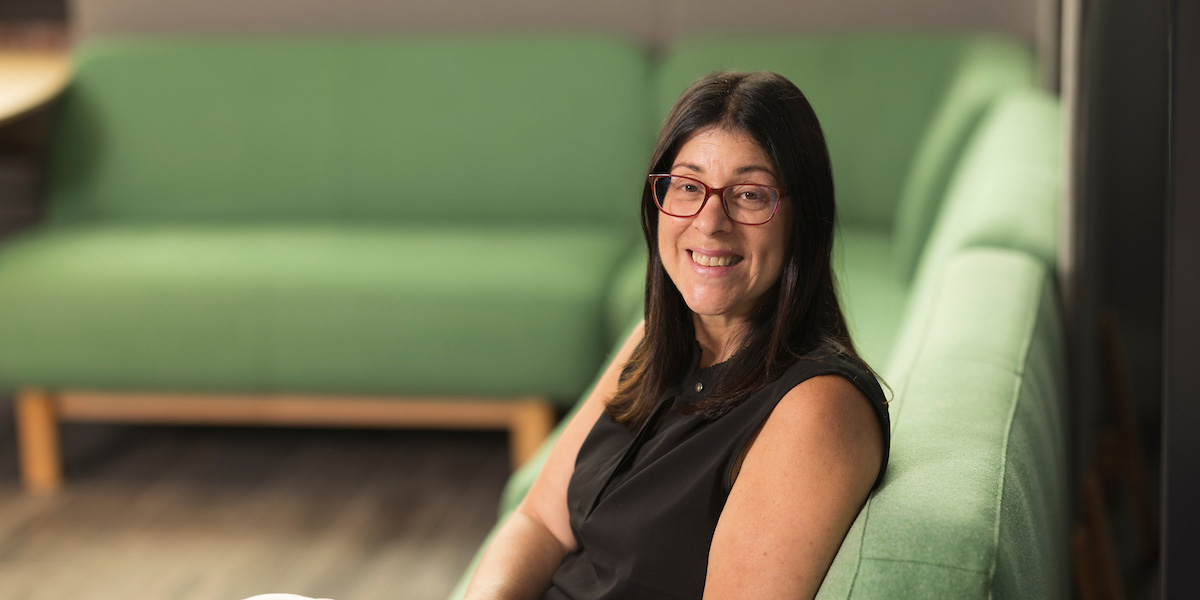What does it take to be an occupational therapist? Decker College’s Amy Lorino has this to say
Clinical associate professor specializes in community and home health practice, shares what sets OTs apart

Binghamton University Clinical Associate Professor Amy Lorino is an occupational therapist specializing in community and home health practice for adults with physical and psychosocial challenges. She joined Decker College of Nursing and Health Sciences in 2022 and teaches in the entry-level and post-professional Doctor of Occupational Therapy programs. She has worked in various clinical settings, including as director of rehabilitation in a rural hospital system.
What is the unique scope of occupational therapy?
Occupational therapy is a holistic profession — we specialize in supporting people to perform and participate in the things they want and need to do in their lives (“occupations”). OTs are expert problem-solvers specially trained in task analysis, understanding the inherent demands of daily occupations and what goes into the successful performance of occupations. We address functional skills in physical, psychosocial and cognitive areas and modify occupations and environments. For example, an OT might adapt medication-management occupations for an older adult, treat an adult’s hand injury or teach a child to build emotional-regulation strategies in a classroom setting. Everyone knows what OTs do and loves having us as part of the team, but they may not always understand our broad skill set and distinct scope of expertise.
What are your specialties and clinical interests in OT and what drew you to them?
Home health, adult and adolescent mental health, working with people with multiple chronic conditions, health literacy and supporting caregivers of persons with dementia. I have always enjoyed home care because you’re in the person’s natural setting and can support them to function where they live.
Tell us more about your work with caregivers of people with dementia.
I am certified as a Skills2Care™ practitioner. This is an evidence-based intervention for OTs working with caregivers of people with dementia. It empowers them to use problem-solving skills and strategies to manage the things one does as a caregiver. It can improve their relationship and the caregiving role, so both parties have a better quality of life and sense of well-being.
Discuss your work related to OT for adults with multiple chronic conditions and the challenges of implementing effective OT practices for them.
I conducted research with younger adults with multiple chronic conditions, focusing on how they manage their medications. I learned about their experiences of medication management and how they impact their health. It can be overwhelming and complicated for people with multiple chronic conditions to manage their health. The young adults expressed that they often feel providers don’t listen to them, especially when they’re trying to find appropriate treatments. OTs are great at developing therapeutic relationships and generating solutions, but I think we need to step back and really listen to the client and not immediately jump to “fix” something. That could further improve our therapeutic relationships and improve client outcomes.
How can OT contribute to improved health and well-being?
OTs promote healthy lifestyles and occupations for our patients and communities as part of our practice and philosophy. We help people balance the activities they want to engage in. We teach health-related skills and collaborate with other disciplines to prevent disabilities and mitigate health-related risk factors, ensuring people can do what they want to do.
What brought you to Decker College?
Around the time of the pandemic, my son — who graduated from Watson College — told me Binghamton was starting an OT program. I researched it and saw Jane Bear-Lehman was directing the program. She was my teacher at Columbia. We had a conversation, and I applied to the faculty. I’m blessed to be here!
